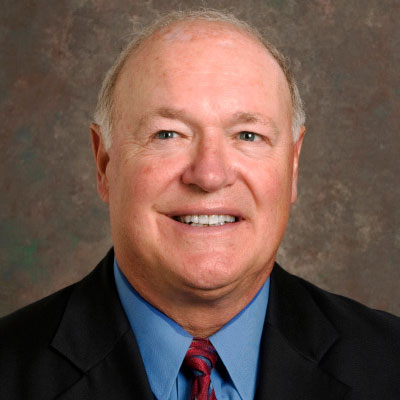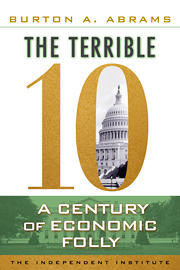Janet Yellen, President Obama’s pick to head the Federal Reserve, has been praised for her scholarly work as a Berkeley professor. On the other hand, some fear she will be soft on inflation. For those Americans still confused, some might find an interesting case study in the tenure of another president.
In 1969, President Richard Nixon’s pick for Fed boss was Arthur F. Burns, a respected economist with impressive credentials: professor of economics at Columbia University, president of the National Bureau of Economic Research from 1957 to 1967, and chairman of the Council of Economic Advisors under President Eisenhower from 1953 to 1957.
Burns was a respected authority on business cycles and monetary policy and published extensively. When he took command of the Fed in 1970, the economy was mired in stagflation, an inflationary recession. Burns’s options were to control the money supply tightly and risk prolonging the recession, or rev up the printing presses and risk inflation. Printing more money was the course President Nixon wanted.
“I’ve never seen anybody beaten on inflation in the United States,” he said in a taped conversation. “I’ve seen many people beaten on unemployment.”
Milton Friedman, the preeminent authority on monetary policy, told Nixon that his policy was already too expansionary, but Nixon ignored Friedman’s advice. Burns, a longstanding Republican loyalist, gave the president exactly what he wanted. By February 1971, with the 1972 presidential election looming, Nixon wanted the money presses to run even faster.
“We’ve really got to think of goosing it,” he told Burns in another taped conversation.
That shortsighted, politically motivated policy not only defied the alleged independence of the Fed, it launched the economy on an inflationary course that could be reversed only at enormous cost to the nation in the long run. During the administration of Jimmy Carter, inflation and unemployment combined in a “misery index.”
The Nixon-Burns inflationary cycle is surely one of the worst economic blunders of the past 100 years. But is another one like it just around the corner?
Under Ben S. Bernanke the money presses have been working three shifts and the Fed has kept the short-term interest rate near zero. Enter Janet Yellen, who in early April said: “I believe progress on reducing unemployment should take center stage, even if maintaining that progress might result in inflation slightly and temporarily exceeding 2 percent.”
As a result of the Fed’s Quantitative Easing programs, banks are now sitting on more than $2.2 trillion in excess reserves. How the Fed eliminates these excess reserves before they produce an explosive growth in the money supply and surging inflation should be more of a concern to the next Fed Chair than an unemployment rate that is more the product of uncertainties associated with deficit spending and business fears about Obamacare than any lack of liquidity caused by the Fed.
Yellen’s defenders say there’s nothing to worry about. As Georgetown University professor Henry Holzer put it, Yellen is fully aware of inflation and not a “mindless stimulator.” Others aren’t so sure.
Yellen earned her doctorate at Yale under Nobel laureate James Tobin, a Keynesian proponent of activist government. She is not a supply-sider, and astute observers such as Lawrence Kudlow find no evidence that Yellen might use a market-price rule as an inflation signal. Rather, Yellen subscribes to the Phillips-curve model that trades off unemployment and inflation. “If you work from the wrong money model,” says Kudlow, “you are likely to get the wrong money results.”
Beyond that, what about the prospects of Yellen caving to pressure from President Obama? Bill Clinton first appointed Yellen to the Federal Reserve, and she is a veteran of the Clinton administration. So she may well be a pliable Democratic loyalist to the same degree that Arthur Burns was a Republican loyalist—or more so.
We know about the Nixon-Burns machinations because secret tapes came to light. In the highly secretive Obama administration similar revelations are unlikely, but that may not matter. Recent years provide plenty of evidence that the president is a mindless stimulator, and Janet Yellen is the president’s choice to head the Federal Reserve. So, yes, inflation could soon mount a surge.








